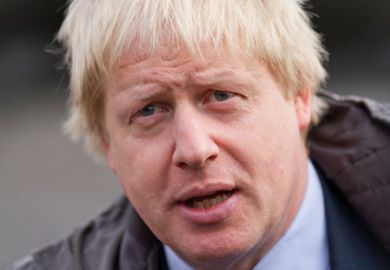Research and policy exist on different time planes. Research is linear and long-term. Policy goes in peaks and troughs depending on where we are in the election cycle.
It is why policy impact for academics can be so challenging, but it also means that there are optimum periods for engagement – and one such is now.
There is a lot of speculation in Westminster about when the next general election will be called. All we know for sure is that the latest is January 2025. Next May seems a likely date, but no one knows.
The only thing that is certain is that we are now officially in the run-up period when politicians are at their most receptive to fresh ideas and relevant policy-focused research to put into manifestos.
The art of political manifesto writing is to balance vision with realism and thrift, itemising policy priorities for government. If those priorities have not already been decided by political parties, they are certainly in the late stages of development – and we can guess at some of the issues on which all parties will need to have views at the next general election. These will include how they might reduce NHS waiting lists, whether water companies or rail franchises might be reformed or even nationalised, and how levelling up would address housing shortages. Climate change will loom large in some voters’ minds while political leaders might need to have convincing answers on how they would support manufacturing, rethink immigration policy and fix post-16 education.
It is not an exhaustive list but even here there is enough for most academics to adapt and fit their research – and it is critical that they do so. Policy priorities will not change because an academic has published a particularly interesting report. This is because the audience for a manifesto is not academics or civil servants but the general public.
So, if a piece of research shows incontrovertibly that replacing all 23 million gas boilers in homes with heat pumps will significantly reduce carbon emissions but would cost householders thousands of pounds and cause severe disruption, then that’s not something people would vote for and would not be a policy to find its way into a manifesto. Research into technologies that might lead to a reduction in energy bills, on the other hand, is more likely to.
Manifesto policies matter because a winning party gets to enact them. The House of Lords, by convention, does not block manifesto pledges and, if there is a hung parliament (a real possibility again), manifesto policies are the basis on which negotiations begin.
That is why the language of manifestos is deliberately vague. It provides wiggle room for the heated exchanges during the election campaign and allows “clarification” once a party is in government.
This is where there are the greatest opportunities for academics: in providing the evidence base to illustrate why a policy would work, and that it would be popular and cost-effective.
Finding out what policies are likely to frame manifestos is not always easy, but the forthcoming political party conference season will be a strong indicator. These are likely to be the last conferences before the general election and will see the manifestos starting to take shape.
The leader of the Labour Party always gets two bites of the cherry. The first is a speech to the Trades Union Congress at the end of September. The national audience for this is generally small, so this is where Keir Starmer can road-test a few ideas. It’s always informative to see which policies make it to the second bite – the leader’s speech at the Labour Party conference a few weeks later – and which are quietly retired.
Governing parties have advantages in incumbency and access to resources, but a disadvantage in having to defend their record in power. Oppositions do not enjoy the same sort of platforms and machinery behind them and are therefore much more open to offers of policy support. That, though, does not mean sending them a recent academic report but rather engaging with them on the policies they care about.
Manifesto policies, like most communications with politicians, need to be short, relevant and to the point. They need to be constructive and explain what policy priority is being addressed. Most importantly, they have to be written in language that a non-expert can understand.
Manifesto policies do not have to be political or partisan. Suggestions, options, implications and evidence can be sent to all parties.
Most academics will not have hotlines to manifesto authors, so it is important to start writing, posting and broadcasting in places and on spaces that politicians read, hear and watch – political magazines and papers, blog sites, Twitter and LinkedIn, for example – but start now and build.
August is when politicians and political journalists take a break. The scramble to win time on the airwaves and fill column inches is paused. Editors have more space to fill and are looking for ideas. After that, every political event between now and the general election is a hook to develop research into policy ideas.
But get going. Time is short. As soon as the election is fought and won, we have to wait for the political cycle to take a full turn before we have this golden opportunity again.
Natascha Engel is chief executive of Palace Yard, a cross-party thinktank, and a former deputy speaker of the House of Commons.
Register to continue
Why register?
- Registration is free and only takes a moment
- Once registered, you can read 3 articles a month
- Sign up for our newsletter
Subscribe
Or subscribe for unlimited access to:
- Unlimited access to news, views, insights & reviews
- Digital editions
- Digital access to THE’s university and college rankings analysis
Already registered or a current subscriber?









